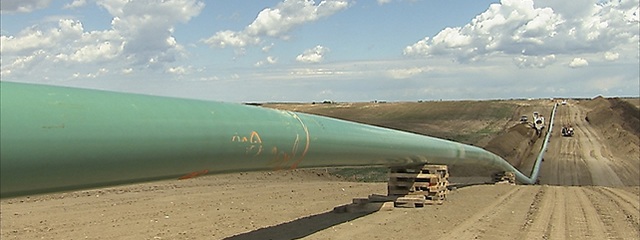Bill regulating pipelines fails in committee
by March 22, 2017 2:34 pm 512 views

The House Insurance and Commerce Committee said no Wednesday to a bill that would have increased regulatory hurdles and reporting requirements for pipeline companies wishing to use eminent domain.
House Bill 2086 by Rep. Warwick Sabin, D-Little Rock, failed on a voice vote, with only one committee member, Rep. Reginald Murdock, D-Marianna, heard voting yes.
The bill would have limited use of eminent domain to entities associated with a natural gas public utility or those operating as a common carrier. A permit from the Arkansas Department of Environmental Quality would have been required. Among its other provisions, pipeline companies would have been required to notify potentially affected landowners by certified mail.
Referencing the Diamond Pipeline, which will carry oil from Oklahoma to Memphis through rural areas and reservoirs, Sabin argued that eminent domain should be reserved for projects related to the public good. He said the bill would not affect that project, whose “horse is way out of the barn.” He said large companies approach landowners with the help of their attorneys.
“We’re the referee, and we’re making sure that it’s a fair negotiation,” he said of legislators.
But Alan Perkins, an attorney representing the Arkansas Petroleum Council and the Arkansas Independent Producers and Royalty Owners, said the bill could better be described as the “try to regulate pipelines out of existence act.” He said projects that might use eminent domain require lengthy development and route changes, so notifying everyone potentially affected would be expensive. He said the regulatory process required by the act would prevent small projects such as natural gas wells from happening because of the cost.
Randy Zook, president and CEO of the Arkansas State Chamber of Commerce, said increased production of oil and natural gas in the United States has had a positive effect on the economy and said the bill would single out pipeline companies but not others that can use eminent domain.
